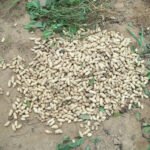By Murimi Gitari, 11 May, 2021
Uzima Poultry, and agri-SME, receives a US$3 million follow-on investment to increase food security and improve livelihoods for smallholder farmers East Africa
KIGALI, RWANDA & KAMPALA, UGANDA
Uzima Chicken, a leading distributor of high-quality, dual-purpose day-old chicks in East Africa, has received a follow-on investment of US$ 3 Million from AgDevCo.
The investment will contribute to transformation of the poultry industry in Rwanda and Uganda, providing smallholder farmers with high-quality, highly productive birds that can thrive in the local context. Through the Uzima breed, smallholder farmers and their families will have the opportunity to diversify their incomes and build resilience, while consuming more affordable nutritious animal protein.
Dr. Fadel Ndiame, AGRA’s Deputy President said the investment into Uzima Chicken will help the company work towards its mission to make smallholder farmers healthier and wealthier and achieve its vision to ensure each household in Rwanda have at least one chicken per year.”
The investment was supported by the Agribusiness Deal Room of the African Green Revolution Forum (AGRF).
The AGRF is Africa’s premier agriculture conference, with its Deal Room being a leading platform for matchmaking high potential African agri-SMEs to investors.
Incubated by the AGRF partners and the Government of Rwanda, the Deal Room’s Investment Facilitation Program contributed to the successful transaction by paying for a comprehensive market and competitor analysis study, led by the CrossBoundary Group, an advisory services firm.
The Chief Executive Officer at Rwanda Development Board and Rwanda Cabinet member, Hon. Claire Akamanzi, re-emphasized the commitment of the Rwandan Government to facilitating private-sector growth.
“We want to work with the private sector to identify and link them to opportunities where they will thrive and we are pleased that Uzima Chicken has responded to our conducive business environment, to which we welcome their continued growth.” She said.
The investment facilitation work is a critical component of the year-round engagement of the AGRF Deal Room.
It serves to address the challenges business and investors face in raising and deploying capital while serving as a feedback loop for various supporting initiatives.
Since its establishment in 2018, the Deal Room has brought the spotlight on Africa’s growing poultry and animal feed sector. The Deal Room also serves to advance and accelerate transactions towards successful deal signing and closure. The Agribusiness Deal Room of the AGRF and subsequent investment facilitation work will continue to provide catalytic support to the agriculture sector, unlocking capital for an underserved sector.
Joseph Shields, co-founder of Uzima Chicken, said that AgDevCo’s investment has enabled them to fully focus on the implementation of their business plan.
“AgDevCo’s backing has enabled us to focus on the growth of Uzima Chicken, currently, we have distributed close to five million birds.” Joseph said.
As part of their approach and business strategy, AgDevCo is seeking to invest more into African businesses to promote growth, sustainability, and impact.
“Since we first invested in 2017, Uzima’s progress showcases the potential that SMEs have to drive transformation of the agriculture sector if they have access to patient capital. We look forward to working with more businesses to drive further growth and impact in the region.” Chris Isaac, Chief Investment Officer at AgDevCo, expressed his delight at Uzima’s growth so far.
This follow-on investment means that AgDevCo has now invested a total of US$6M into Uzima Chicken.
Matchmaking and transaction facilitation in the Agribusiness Deal Room is implemented by CrossBoundary Group whose mission is to unlock capital to make a strong return and a lasting difference in underserved markets globally.
AgDevCo is a specialist investor in African agriculture that invests to grow sustainable and impactful agribusiness. It invests and supports agribusinesses to grow, create jobs, produce and process food and link farmers to markets.







